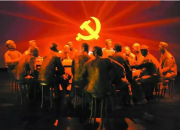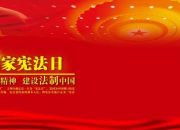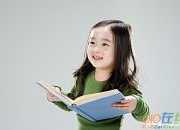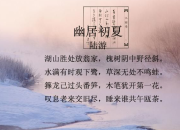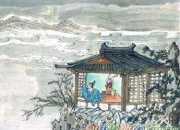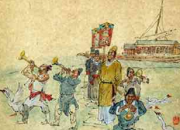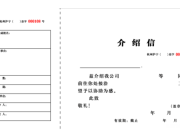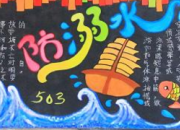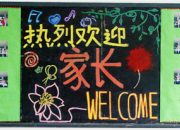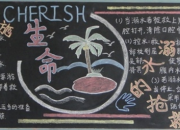九年级英语unit7课件
时间:2021-08-31在九年级的英语教学时应该如何准备好关于unit7的课件呢?下面是小编分享给大家的九年级英语unit7课件,希望对大家有帮助。
Unit 7 Teenagers should be allowed to
choose their own clothes.
教学目标:
1语言目标:理解并正确运用本单元的重点词汇
2 技能目标:熟练运用 “should (not) be allowed to do”谈论应该被允许和不应该被允许做某事;
熟练运用 “be (not) allowed to do”谈论被允许和不被允许做某事;
熟练运用 “I agree / disagree.”或“ I don’t agree.”表达自己的观点。
3 情感目标:通过了解和反思自己的言行举止是否符合中学生日常行为准则、规范自己的言行,养成自觉遵守规则的良好习惯和优良品德;
正确看待“家规”“班规”“校规”等,并能认真遵守;
明白父母、教师的合理建议对自己成长的重要性
4文化意识目标:
了解中外审美观的差异,形成自己的审美观,展示个性;
了解中西方关于青少年的不同文明准则。
教学重点:
重点语法:被动语态
重点词汇:smoke, pierce, license, safety, earring, cry, field, hug, lift, awful, teen, regret, poem, bedroom , community, chance, manage, society, unit, educate, professional, enter, support
talk about, keep away from, make one’s own decision, get in the way of
重点句型:
I don’t think sixteen-year-olds should be allowed to drive.
I agree./ I disagree. I think sixteen is too young.
Do you think teenagers should be allowed to work at night?
Yes, I do. / No, I don’t.
教学难点:含情态动词 should的被动语态结构“should be allowed to”
课时划分:
Period One: Section A 1 (1a-2d)
Period Two: Section A 2 (3a-3c)
Period Three: Section A 3 (Grammar Focus-4c)
Period Four: Section B 1 (1a-2e)
Period Five: Section B 2 (3a-Self Check)
Section A 1 (1a-2d)
I. Presentation
Ask students: Do your parents allow you to watch TV? Yes, they do.
Present the sentence: You are allowed to watch TV.
Teach “allow sb to do sth “
“be (not) allowed to do sth”
“should (not)be allowed to do sth”
Present more sentence.
Do your parents allow you to exercise?
Yes, they do.
You are allowed to exercise.
Do your parents allow you to smoke?
No, they don’t.
You are not allowed to smoke.
Do your parents allow you to drive?
No, they don’t.
You are not allowed to drive.
Do your parents allow you to choose your own clothes?
No, they don’t.
You should be allowed to choose your own clothes.
Do your parents allow you to get your ear pierced?
No, they don’t.
You should not be allowed to get your ear pierced.
II. Warming up
Obey the school rules!
As a teenager, you have a lot of rules at school. Can you write down some of them?
Students should be allowed to speak English loudly.
Students shouldn’t be allowed to sleep in class.
Students shouldn’t be allowed to make noises.
Students shouldn’t be allowed to throw the rubbish in the classroom.
Students shouldn’t be allowed to get to class late.
Explain:
allow sb to do sth
允许某人做某事
be allowed to do sth
被允许做某事
should be allowed to do sth
应该被允许做某事
1a. Read the statements below. Circle A for agree or D for disagree.
1. Teenagers should not be allowed to smoke. A D
2. Sixteen-year-olds should be allowed to drive. AD
3. Students should not be allowed to have part-time jobs. AD
4. Sixteen-year-olds should be allowed to get their ears pierced. AD
5. Teenagers should be allowed to choose their own clothes. AD
III. Listening
1b Listen and circle T for true or F for false.
1. Anna can go to the shopping center by bus. T F
2. Anna wants to get her ears pierced. T F
3. Anna wants to choose her own clothes. T F
IV. Practice
1c Look at the statements in la and make conversations.
A: I don't think sixteen-year-olds should be allowed to drive.
B: I agree. They aren't serious enough.
V. Key phrases
1. be allowed to do 被允许去做
2. the shopping center 购物中心
3. driver’s license 驾驶执照
4. sixteen-year-olds 16岁的孩子
5. be worried about your safety 担心你们的安全
6. part-time jobs 兼职工作
7. get their ears pierced 穿他们的耳朵
8. their own clothes 他们自己的衣服
9. serious enough 足够严肃
VI. Listening
2a What does Molly think of Kathy’s statements? Listen and circle A for Agree,
D for Disagree or DK for Doesn’t Know.
Kathy Molly
1. Sixteen-year-olds should not be
allowed to work at night.
2. Larry shouldn't work every night.
3. He should cut his hair.
4. He should stop wearing that silly
earring.
5. He doesn't seem to have many
friends.A D DK
A D DK
A D DK
A D DK
A D DK
2b Listen again. What are Kathy’s and Molly’s reasons? Number their reasons in
the correct order.
_____ It looks cool.
_____ Young people need to sleep.
_____ He needs to spend time with friends.
_____ He needs time to do homework.
_____ It doesn't look clean.
VII. Practice
1. 2c Make a list of things teenagers should and should not be allowed to do. Discuss your list with your partner.
A: Do you think teenagers should...?
B: Yes, I .../No, I...
2. 2d Read the conversation and answer the questions.
1) Where do they go for school trip?
2) Does Mr. Smith allow students to take photos?
3) How to take photos?
3. Role-play the conversation.
VIII. Summary
1. Language points
